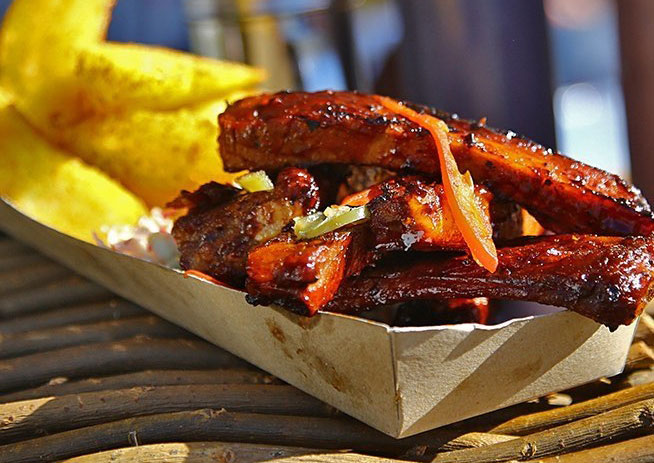
How To Start A Fast Food Business In South Africa. Starting a fast food business in South Africa can be a lucrative opportunity given the country’s vibrant food culture and the increasing demand for convenient and affordable dining options. However, it requires careful planning, research, and execution. Here’s a comprehensive guide on how to start a fast food business in South Africa:
Market Research and Concept Development
Before launching a fast food business, it’s essential to conduct thorough market research to understand your target audience, competition, and market trends.
- Identify Your Niche: Determine the type of fast food you want to serve. This could be burgers, pizzas, local favorites like “bunny chow” or “boerewors rolls,” or healthier fast food options. Consider the demand in your area and what sets your offering apart from competitors.
- Target Audience: Understand your customer demographics (age, income level, preferences). For example, will you cater to office workers, students, or families?
- Competition Analysis: Research existing fast food outlets in your area, their pricing, menus, and customer feedback. Identify gaps in the market that you can fill.
Business Plan Development
A solid business plan will serve as the roadmap for your fast food business and is essential if you need to secure funding.
- Executive Summary: Outline your business idea, target market, and unique selling proposition (USP).
- Operational Plan: Detail the day-to-day running of the business, including staffing, inventory management, and supply chain operations.
- Financial Projections: Estimate your startup costs, operating expenses, and potential revenue. Include projected profits and a break-even analysis.
- Marketing Plan: Develop strategies to attract customers, such as social media marketing, loyalty programs, or partnerships with delivery platforms like Mr. D or Uber Eats.
Register Your Business and Get Necessary Permits
Registering your business and ensuring it complies with all legal requirements is critical to operating a legitimate and successful fast food business.
- Business Registration: Register your business with the Companies and Intellectual Property Commission (CIPC) to secure a legal business structure. This could be as a sole proprietor, partnership, or private company.
- Food Safety Certificates: Contact your local municipality to obtain the necessary permits for food safety. This will include health inspections and food safety certifications to comply with South African regulations.
- Trading License: Obtain a trading license from the local municipality to operate legally within your area.
- Tax Registration: Register with the South African Revenue Service (SARS) to ensure you meet all tax obligations.
Secure Funding
Starting a fast food business requires capital for rent, equipment, inventory, and marketing. There are several ways to secure funding:
- Personal Savings: If possible, use personal savings to cover startup costs.
- Small Business Loans: Approach South African banks or funding institutions like the Small Enterprise Finance Agency (SEFA) for business loans tailored to small businesses.
- Government Grants: Explore available government grants for small businesses, particularly those aimed at empowering entrepreneurs in the food industry.
- Investors or Partnerships: Consider bringing on partners or investors who are willing to finance your business in exchange for equity.
Choose a Strategic Location
Location is critical in the fast food business, as high foot traffic and accessibility will directly impact your sales.
- High-Traffic Areas: Look for areas with high pedestrian or vehicle traffic, such as near shopping malls, schools, universities, or office buildings.
- Visibility and Accessibility: Ensure that your location is easily accessible and visible to potential customers. Convenient parking or proximity to public transport can attract more customers.
- Rent and Operating Costs: Consider the rental costs and ensure they align with your budget. Some areas may offer higher foot traffic but come with higher rent, so balance cost versus potential sales.
Procure Equipment and Set Up the Kitchen
The success of your fast food business depends on the efficiency of your kitchen setup and the quality of your equipment.
- Essential Equipment: Purchase kitchen equipment like fryers, grills, ovens, refrigerators, and freezers. Depending on your menu, you may also need specialized equipment like pizza ovens or sandwich presses.
- Suppliers: Build relationships with reliable suppliers for food ingredients, packaging, and other essentials. You can source these locally or through wholesale distributors.
- Quality Control: Ensure your kitchen setup promotes fast, efficient, and hygienic food preparation. This will be crucial in maintaining food safety standards and ensuring quick service.
Develop a Menu
Your menu is a critical part of your fast food business, and it should reflect your brand, target market, and niche.
- Popular Dishes: Offer a selection of fast food staples that appeal to your target audience, while also including unique offerings that set you apart from competitors.
- Pricing: Ensure your menu is priced competitively while allowing for profitability. Consider offering value meals or combo deals to attract budget-conscious customers.
- Healthy Options: Given the growing demand for healthier fast food, consider adding nutritious options to cater to health-conscious customers.
Hire and Train Staff
Your staff will be the backbone of your fast food business, and hiring the right people is key to ensuring smooth operations.
- Staff Roles: Hire cooks, kitchen assistants, cashiers, and delivery drivers if you plan to offer delivery services.
- Training: Ensure all staff are trained in customer service, food preparation, hygiene standards, and safe handling of food. Training also helps maintain consistency in the quality of food and service.
- Customer Interaction: Encourage friendly and efficient customer service. In the fast food industry, quick and polite service is critical for customer retention.
Marketing and Brand Development
To attract customers, you need a strong brand and marketing strategy that resonates with your target market.
- Brand Identity: Develop a memorable brand name, logo, and slogan that communicate what your fast food business is about.
- Digital Presence: Build a website and establish a presence on social media platforms like Instagram, Facebook, and Twitter to engage with potential customers. Post pictures of your food, promotions, and special offers to build excitement.
- Promotions and Discounts: Offer grand opening specials, discounts, and loyalty programs to attract first-time customers and keep them coming back.
- Partner with Delivery Apps: Register your business with popular delivery platforms such as Uber Eats or Mr. D to expand your reach and make it easier for customers to order from you.
Ensure Consistency and Quality
Consistency in both food quality and service is crucial for retaining customers and building a loyal customer base.
- Standardized Recipes: Ensure that all staff follow standardized recipes and cooking methods to maintain consistent taste and quality.
- Customer Feedback: Regularly seek feedback from customers to understand their preferences and make improvements where necessary.
- Food Safety and Hygiene: Implement strict food safety and hygiene practices to prevent foodborne illnesses and ensure compliance with health regulations.
In conclusion, starting a fast food business in South Africa offers great potential, but it requires careful planning, dedication, and attention to detail. From market research and securing funding to creating a standout menu and providing excellent customer service, each step is vital to success. With the right strategy and commitment, your fast food business can thrive in South Africa’s dynamic and competitive food industry.




